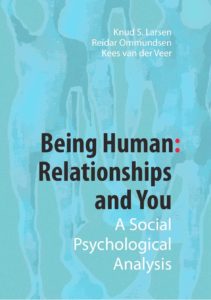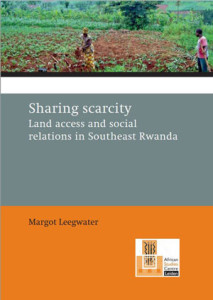Being Human. References
 Abell, G.O.C1981). Astrology. In G.O. Abell & B. Singer (Eds.), Science and the paranormal: Probing the existence of supernatural. New York: Charles Scribner’s Sons.
Abell, G.O.C1981). Astrology. In G.O. Abell & B. Singer (Eds.), Science and the paranormal: Probing the existence of supernatural. New York: Charles Scribner’s Sons.
Abelson, R.P., Kinder, D.R, Peters, M.D., & Fiske, S.T. (1982). Affective and semantic components in political person perception. Journal of Personality and Social Psychology, 42, 619-630.
Aberson, C.L., & Ettlin, T.E. (2004). The aversive racism paradigm and responses favoring African-Americans: Meta-analytic evidence of two types of favoritism. Social Justice Research, 17, 25-45.
Aboud, R. (1988). Children and prejudice. New York: Basil Blackwell.
Abraham, M.M., & Lodish, L.M. (1990). Getting the most out of advertising and promotion. Harvard Business Review, 68, 50-60.
Abrahmson, A.C., Baker, L.A., & Capsi, A. (2002). Rebellious teens? Genetic and environmental influences on the social attitudes of adolescents. Journal of Personality and Social Psychology, 83, 1392-1408.
Abrams, D., Wetherell, M., Cochrane, S., Hogg, M.A., & Turner, J.C. (1990). Knowing what to think by knowing who you are: Self-categorization and the nature of norm formation, conformity, and group polarization. British Journal of Social Psychology, 29, 97-119.
Abramson, L.Y. (Ed.). Social cognition and clinical psychology: A synthesis. New York: Guilford.
Abramson, L.Y., Metalsky, G.I., & Alloy, L.B. (1989). Hopelessness depression: A theory based subtype of depression. Psychological Review, 96, 358-372.
Adams, H.E., Wrigth, L.W., & Lohr, B.A. (1996). Is homophobia associated with homosexual arousal? Journal of Abnormal Psychology, 105, 440-445.
Addis, M.E., & Mahalik, J.R. (2001). Men, masculinity, and the context of help seeking. American Psychologist, 58, 5-14.
Adler, J. (1994, November 7), Beyond the bell curve. Newsweek, p. 56.
Adler, N.E., Boyce, T., Chesney, M.A., Cohen, S., Folkman, S., & Kahn, R.L. (1994). Socioeconomic status and health: The challenge of the gradient. American Psychologist, 49, 15-24.
Adorno, T.W., Frenkel-Brunswik, E., Levinson, D.J., & Sanford, R.N. (1950). The authoritarian personality. New York: Harper.
Agnew, C.R., Van Lange, P.A.M., Rusbult, C.E., & Langston, C.A. (1998). Cognitive interdependence: Commitment and the mental representations of close relationships. Journal of Personality and Social Psychology, 74, 939-954.
AhYun, K. (2002). Similarity and attraction. In M. Allen, R.W. Preiss, B.M Gayle, & N.A. Burrell (Eds.), Interpersonal communications research (pp. 145-167). Mahwah, NJ: Erlbaum.
Aisnworth, M.D., Blehar, M.C., Waters, E., & Wall, S. (1978). Patterns of attachment. Hillsdale, NJ: Erlbaum.
Ajzen, I. (1982). On behaving in accordance with one’s attitudes. In M.P. Zanna, E.T. Higgins, & C.P. Herman (Eds.). Consistency in social behavior: The Ontario Symposium, vol. 2, Hillside, NJ: Erlbaum.
Ajzen, I. (1985). From intentions to actions: a theory of planned behavior. In J. Kuhl & J. Beckman (Eds.), Action-control: From cognition to behavior. Heidelberg, Germany: Springer-Verlag.
Ajzen, I. (1987). Attitudes, traits, and actions: Dispositional prediction of behavior in personality and social psychology. In L. Berkowitz (Ed.), Advances in experimental social psychology (Vol. 20, pp. 1-63). San Diego, CA: Academic Press.
Read more
Hannah Arendt – Zur Person – Full Interview (with English Subtitles)
Hannah Arendt in the Rozenberg Quarterly
Anthony Court – Hannah Arendt’s Theory of Totalitarianism. Part One: http://rozenbergquarterly.com/?p=3099
Anthony Court – Hannah Arendt’s Theory of Totalitarianism. Part Two: http://rozenbergquarterly.com/?p=3115
Nima Emami – Hannah Arendt and The Green Movement: http://rozenbergquarterly.com/?p=563
The Open Library of Humanities
 The Open Library of Humanities (OLH) is a charitable organisation dedicated to publishing open access scholarship with no author-facing article processing charges (APCs). We are funded by an international consortium of libraries who have joined us in our mission to make scholarly publishing fairer, more accessible, and rigorously preserved for the digital future.
The Open Library of Humanities (OLH) is a charitable organisation dedicated to publishing open access scholarship with no author-facing article processing charges (APCs). We are funded by an international consortium of libraries who have joined us in our mission to make scholarly publishing fairer, more accessible, and rigorously preserved for the digital future.
The OLH publishing platform supports academic journals from across the humanities disciplines, as well as hosting its own multidisciplinary journal. Launched as an international network of scholars, librarians, programmers and publishers in January 2013, the OLH has received two substantial grants from the Andrew W. Mellon Foundation to date, and has built a sustainable business model with its partner libraries.
All of our academic articles are subject to rigorous peer review and the scholarship we publish showcases some of the most dynamic research taking place in the humanities disciplines today – from classics, modern languages and cultures, philosophy, theology and history, to political theory, sociology, anthropology, film and new media studies, and digital humanities. Our articles benefit from the latest advances in online journal publishing – with high-quality presentation, annotative functionality, robust digital preservation, strong discoverability and easy-to-share social media buttons.
Our mission is to support and extend open access to scholarship in the humanities – for free, for everyone, for ever.
Go to: https://www.openlibhums.org/
The School Of Life ~ Sociology – Alexis De Tocqueville
Alexis de Tocqueville was a 19th century French aristocrat with some crucial things to tell us about the strengths and weaknesses of that once-new and now widespread political system: democracy. Please subscribe here: http://tinyurl.com/o28mut7
If you like our films take a look at our shop (we ship worldwide): http://www.theschooloflife.com/shop/all/
Margot Leegwater ~ Sharing Scarcity: Land Access And Social Relations In Southeast Rwanda
 Land is a crucial yet scarce resource in Rwanda, where about 90% of the population is engaged in subsistence farming, and access to land is increasingly becoming a source of conflict. This study examines the effects of land-access and land-tenure policies on local community relations, including ethnicity, and land conflicts in post-conflict rural Rwanda. Social relations have been characterized by (ethnic) tensions, mistrust, grief and frustration since the end of the 1990-1994 civil war and the 1994 genocide. Focusing on southeastern Rwanda, the study describes the negative consequences on social and inter-ethnic relations of a land-sharing agreement that was imposed on Tutsi returnees and the Hutu population in 1996-1997 and the villagization policy that was introduced at the same time. More recent land reforms, such as land registration and crop specialization, appear to have negatively affected land tenure and food security and have aggravated land conflicts. In addition, programmes and policies that the population have to comply with are leading to widespread poverty among peasants and aggravating communal tensions. Violence has historically often been linked to land, and the current growing resentment and fear surrounding these land-related policies and the ever-increasing land conflicts could jeopardize Rwanda’s recovery and stability.
Land is a crucial yet scarce resource in Rwanda, where about 90% of the population is engaged in subsistence farming, and access to land is increasingly becoming a source of conflict. This study examines the effects of land-access and land-tenure policies on local community relations, including ethnicity, and land conflicts in post-conflict rural Rwanda. Social relations have been characterized by (ethnic) tensions, mistrust, grief and frustration since the end of the 1990-1994 civil war and the 1994 genocide. Focusing on southeastern Rwanda, the study describes the negative consequences on social and inter-ethnic relations of a land-sharing agreement that was imposed on Tutsi returnees and the Hutu population in 1996-1997 and the villagization policy that was introduced at the same time. More recent land reforms, such as land registration and crop specialization, appear to have negatively affected land tenure and food security and have aggravated land conflicts. In addition, programmes and policies that the population have to comply with are leading to widespread poverty among peasants and aggravating communal tensions. Violence has historically often been linked to land, and the current growing resentment and fear surrounding these land-related policies and the ever-increasing land conflicts could jeopardize Rwanda’s recovery and stability.
Full text book: http://www.ascleiden.nl/news/sharing-scarcity
Civil Domains and Arenas in Zimbabwean Settings. Democracy and Responsiveness Revisited – DPRN Five
Introduction (written 2008 – first published 2010)
A popular remedy for Africa’s predicament is the promotion of ‘civil society’. It is conventionally seen as a collection of various kinds of non-profit bodies separate from the state and business sector. It is framed within a consensual model of politics, and thus capable of working in ‘partnership’ with both state and business sectors in pursuit of common interests, particularly ‘development’ and ‘democracy’ [i]. Since the late 1970s donors sought substitutes for the state in the private sector. In the 1980s they discovered the virtues of the non-profit branch of this sector. They tasked older entities such as mission hospitals and newly-arrived non-governmental organisations (NGOs) with providing a range of services, from schooling and healthcare to small enterprise promotion, that were once considered responsibilities of the public sector.
Under their neoliberal paradigm, donors have tried to raise the nonprofit sector’s political status. Beyond service provision, its main task is to counter government power. Here civil society is cast as a hero, who routinely calls a villainous state to account. Yet this model of ‘civil society’ has evoked controversy. Questions have arisen about the effects of NGOs not only as substitute providers of basic services, but also as vehicles of public politics, effectively substituting for opposition political parties [ii]. A number of writers have called attention to ‘the obvious: that civil society is [largely] made up of international organisations’. Some argue that the whole concept of ‘civil society’ as promoted by outsiders does not match African sociological or political realities, and can ultimately weaken, rather than strengthen the power of common citizens. There are calls, in short, for a re-think. Read more



